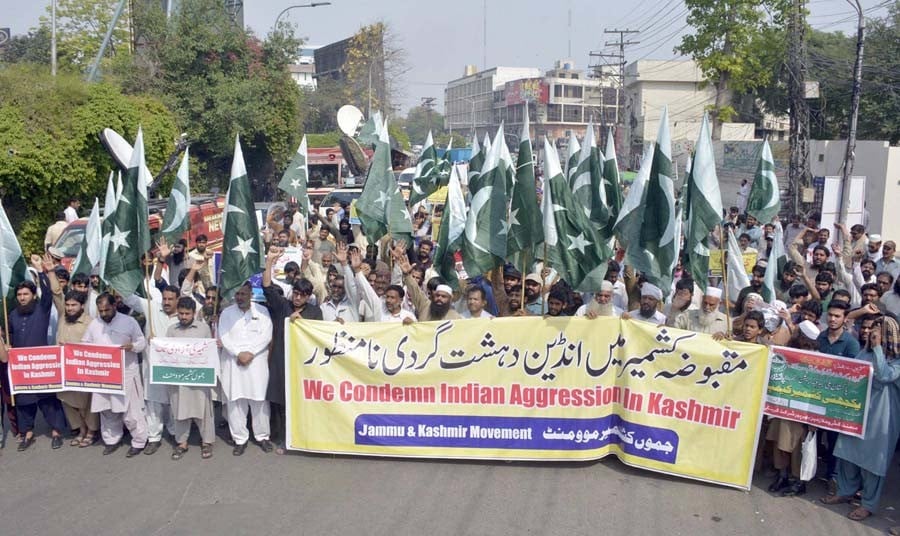
Is there a connection between violations at the LOC and killings in Kashmir?

Anger had already been simmering in Pakistan and Azad Jammu & Kashmir (AJK) over the alleged violations of the Line of Control (LoC) by India, but the recent killings of Kashmiri youth in Indian-occupied Kashmir triggered a wave of fury.
Through the past week, thousands of Kashmiri and Pakistani political activists took to the streets of AJK to protest against Indian security forces. Lawyers, religious leaders, politicians and even cricketers and celebrities slammed the use of brute force by Indian security forces against Kashmiris.
Indian authorities blame Pakistan for the unrest in the valley. Pakistan cannot be blamed for the ruthless use of pellet guns, imprisonment of Kashmiri political workers and fake encounters. There is no evidence suggesting that Burhan Wani, whose 2017 murder exacerbated the current turmoil, was trained here. It is the indigenous response to Indian atrocities that have been condemned by Pakistan and international human rights organisations. If New Delhi is not involved in flagrant violations of human rights then why doesn’t it allow rights groups to visit the valley, analysts ask.
"Kashmiri nationalists believe it is India that is fuelling this tension. Right-wing BJP and RSS want to fan anti-Muslim and anti-Pakistan feelings to get political mileage in the upcoming polls and this has prompted them to commit atrocities in Kashmir," says President of Jammu Kashmir Liberation Front, AJK, Dr Tauqeer Gilani.
"We do not believe in using jihadi proxies as a tool of foreign policy. We think jihadists have badly damaged the struggle of Kashmiri people, which was secular and political in nature before the jihadists hijacked it," says Gilani. He fears Indian atrocities will only popularise the narrative of jihadi organisations that have been maintaining a low profile because of international pressure. "Emotions are running high. Talking about a peaceful solution is becoming difficult for Kashmiri nationalist parties. It is almost impossible to talk about a non-violent struggle before the Kashmiri youths in Indian-occupied Kashmir. The same is the case in Pakistan. If the situation does not improve, our cadre could think about other ways of waging the struggle against the Indian occupation," says Gilani.
Banned jihadi outfits are poised to exploit this situation. The defunct Jaish-e-Mohammad’s weekly magazine, Al Qalm has accused India of using Israeli-made chemical materials to bomb homes in Kashmir. The magazine lambasts India for killing innocent citizens, imprisoning people and interfering with religious matters.
Pacifists in the two nuclear-armed countries fear that the tension along the LOC and turmoil in Indian-held Kashmir could escalate into an armed conflict. Pakistan’s foreign minister and many politicians in India have also warned about this possibility. Such a scenario would be catastrophic for the region because the two arch rivals are believed to have over 200 nuclear warheads, capable of generating over 10 million tonnes of smoke.
Many feel that the international community should intervene because any miscalculation could be disastrous for the over two billion people of the region as well as the rest of the world.